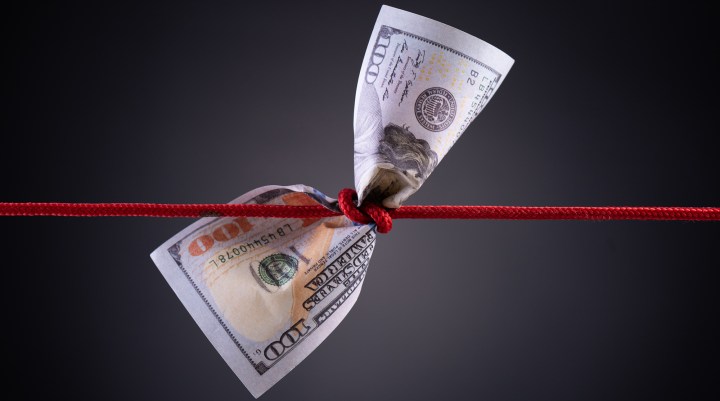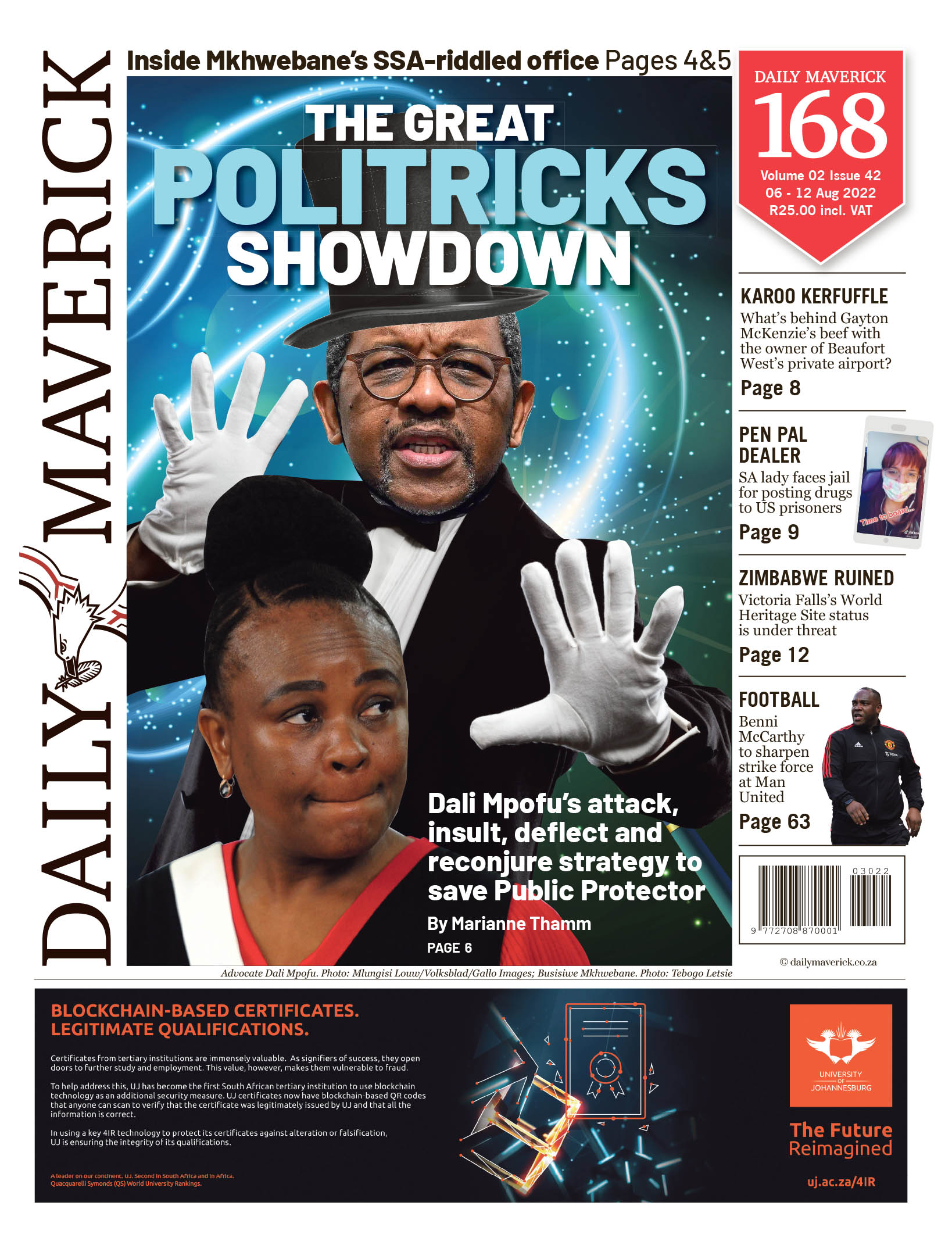ECONOMY ANALYSIS
The depressing contradiction of the US’s ‘jobful contractions’ versus SA’s ‘jobless growth’

As in the US, there’s a growing body of evidence that South Africa’s economy is tipping into a recession. It all boils down to jobs and confidence — and defiance of the laws of economic gravity.
Over the past couple of weeks, my view of what is defined as a “recession” has been challenged. The same goes for my view of “stagflation”.
To wit, a recession is generally declared when the economy of a country contracts for two straight quarters of the calendar year. This measurement is based on gross domestic product, or GDP. The Investopedia definition is almost word for word what I recall from my Economics 101 textbook: “The monetary value of all finished goods and services produced within a country’s borders in a specific period of time.”
The concept of GDP itself has been subjected to plenty of criticism. But it has long been an axiom that a contraction of GDP by its standard measurement over two consecutive three-month periods within a country’s borders signals that its economy has tipped into a recession. For all its flaws, there is a stark simplicity to GDP.
But in the case of the US economy, things are not quite so gin clear.
Bloomberg’s lead on a recent story on the issue went like this:
“After two quarters of contracting gross domestic product in the US, a debate has raged across Wall Street and Washington about when the country will be in a recession — and whether America is already in one.”
Why the debate? Well, in the US it is the National Bureau of Economic Research (NBER) that makes the recession call, and it will do so after Gross Domestic Income (GDI) numbers are released later in August.
Still, there has been a much bigger flap than usual this time round over the term “recession” in the US, and it is not simply a reflection of a polarising political environment.
Cycles of despair
I suspect a couple of things are at work here, and they don’t detract from the growing body of evidence that South Africa’s economy is also tipping into a recession.
It all boils down to jobs and confidence, and how the typical laws of economic gravity are being defied.
Typically, recessions in the US have been linked to a rise in unemployment. When GDP contracts, the monetary value of all those finished goods and services shrink, squeezing out some businesses that, in turn, reduce costs by reducing staff. Or businesses collapse and take their payroll down the drain with them. This creates a cycle of despair as the unemployed have less income to spend on stuff.
One recent example of many stands out. At the end of 2007, the US unemployment rate was 5%. At the end of 2009, it had almost doubled to 9.9%. What happened in between was the onset of the global financial crisis — or “Great Recession” — as the US economy collapsed under the weight of too much personal debt for housing.
The US economy now has had two straight quarters of shrinkage — the classic definition of a recession, though the NBER has still to render a verdict — yet its unemployment rate is a paltry 3.5%. Indeed, it’s also been shrinking throughout economic contraction! It was 4% in January.
In short, it is a “jobful contraction”. The laws of economic gravity it seems are being defied.
Visit Daily Maverick’s home page for more news, analysis and investigations
Inflation, meanwhile, has been surging. The US inflation rate hit another four-decade high in June of 9.1% year-on-year. Much of this has been fueled by fuel prices.
But one would also expect high inflation to coincide with low unemployment because people with a job can buy lots of stuff. Which brings me to “stagflation”.
Doesn’t feel like a recession
Until recently, stagflation — again, recalling my Economics 101 textbook from many moons ago — refers to a situation where economic growth is slow or the economy is contracting, while both unemployment and inflation are at elevated levels. The US economy now has two out of three.
It’s actually creating jobs, or at least not shedding them, so it doesn’t feel like a recession, even if interest rates are also rising to contain inflation. And maybe the US economy will start growing soon again as a low unemployment rate can surely pull an economy upward. Employers in the US are still apparently battling to fill positions. Maybe it’s the effects of the post-pandemic rebound and expectations that things will still get better.
Indeed, on Friday, 5 August, it was revealed that the US economy added 528,000 jobs in July, returning employment to pre-pandemic levels and bringing the unemployment rate down to 3.5% from 3.6%.
Polar opposites
This is all surely a sign of confidence.
Which brings us to the jarring contrast with South Africa.
This economy is almost a polar opposite to the US. Yes, it also has inflationary pressures, with consumer inflation at its briskest pace in 13 years at 7.4%. And the economy is widely believed to have contracted in the last quarter, and the signs so far this quarter are that it is still shrinking. In short, a looming recession.
And it feels like a recession because the unemployment rate was a staggering 34.5% at last count. This pretty much ticks all of the three boxes that add up to stagflation.
This economy has also been shedding jobs even while it has been rebounding from the massive Covid-triggered contraction of 2020. In the first quarter of this year, the economy grew back to pre-pandemic levels of output. In Q4 of 2019, the unemployment rate was 29.1%.
In short, while the economy’s size is back to pre-pandemic levels, employment levels are not.
It’s called “jobless growth”. This is not surprising as business and consumer confidence are also in the gutter.
The reasons why this economy seems unable to create meaningful employment are many: rolling blackouts, policy inertia, skills shortages, security costs and losses linked to rampant crime. Corruption and state failure play a key role as the basic services that a functioning economy requires collapse. And so on and on.
A jobful contraction versus jobless growth is a depressing juxtaposition. And for millions of poor and unemployed people, it means the economy probably feels in a permanent state of depression, never mind recession. DM168
This story first appeared in our weekly DM168 newspaper, which is available countrywide for R25.



















 Become an Insider
Become an Insider
Comments - Please login in order to comment.